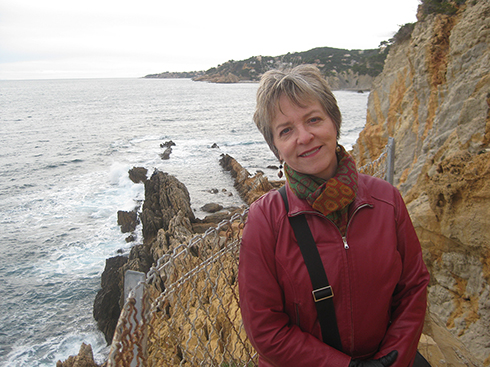Barbara Allen receives French grant to educate communities on environmental health issues

Barbara Allen, professor and co-director of the graduate program in Science and Technology Studies in the College of Liberal Arts and Human Sciences, has received an approximately $267,000 (210,000 euros) grant from the French Agency for Food, Environmental and Occupational Health and Safety to examine a holistic, community-centered perspective for understanding local environmental health issues.
Her goal is to educate citizens on the current state of resident health; to inform future environmental health research; and to guide governmental policies regarding health protection in industrial regions.
The 30-month research project, which will begin Jan. 1, 2015, will take place in the Fos-sur-Mer/Etang de Berre region near Marseille, France, and primarily in two industrial fence line communities: Fos-sur-Mer and Port-Saint-Louis-du-Rhône.
While it embodies a beautiful landscape – picturesque lagoon, wetlands, ancient green pastures, and a habitat for 400 species of birds – the region is also home to some 430 industrial installations that emit tons of air pollutants annually.
“An eerie yellow-brown veil prevails as a result of this assemblage of chemical plants, oil refineries, natural gas facilities, and steel plants. The sunsets appear other-worldly, particularly when the mistral winds are still,” said Allen, who saw this first-hand while working in the Fos-sur-Mer/Etang de Berre region on a National Science Foundation grant comparing how policy relevant science is shaped in very polluted regions of Italy, France, and the United States.
Allen also sensed an underlying unease and apprehension among area residents (approximately 400,000 people living in 30 towns) about the impact of this pollution on their health.
“It is an awkward mélange of wanting to know, of not wanting to know, of suspecting knowing, but feeling disempowered or afraid to act,” Allen said.
Learning that public agencies had never provided even the basic information about health issues that local citizens had been asking about, such as asthma, auto-immune disease, and cancer, set the stage for the research Allen wanted to undertake next -- a community-based participatory health study to produce data that fills a current gap in public knowledge.
Allen added Port-Saint-Louis-du-Rhône to the proposal she submitted to the French government because, like Fos-sur-Mer, it is a study in contrasts. An industrial town and port annex of Marseille, Port-Saint-Louis-du-Rhône is also comprised of many parks, three popular beaches, large farmhouses, vast salt-water swamp marshes, and wildlife that includes herds of wild horses and pink flamingos.
Allen, who is located in the National Capital Region, will serve as the principal investigator of the study, heading a team that will include two medical anthropology post-docs from the Centre National de la Recherche Scientifique, Centre Norbert Elias in Marseille, France, and a doctoral student from the School of Public Health at the University of California Berkeley. The research team will interview local citizens, local officials and associations, local doctors, and other health/environmental practitioners.
“By engaging in community based participatory research methods we will be combining lay and expert knowledge to link social sciences with health risks to examine health inequalities, inform the public, develop a useful survey tool for monitoring population health, and influence policy,” Allen said. “These are all specific to the French government’s concerns and interests.”







